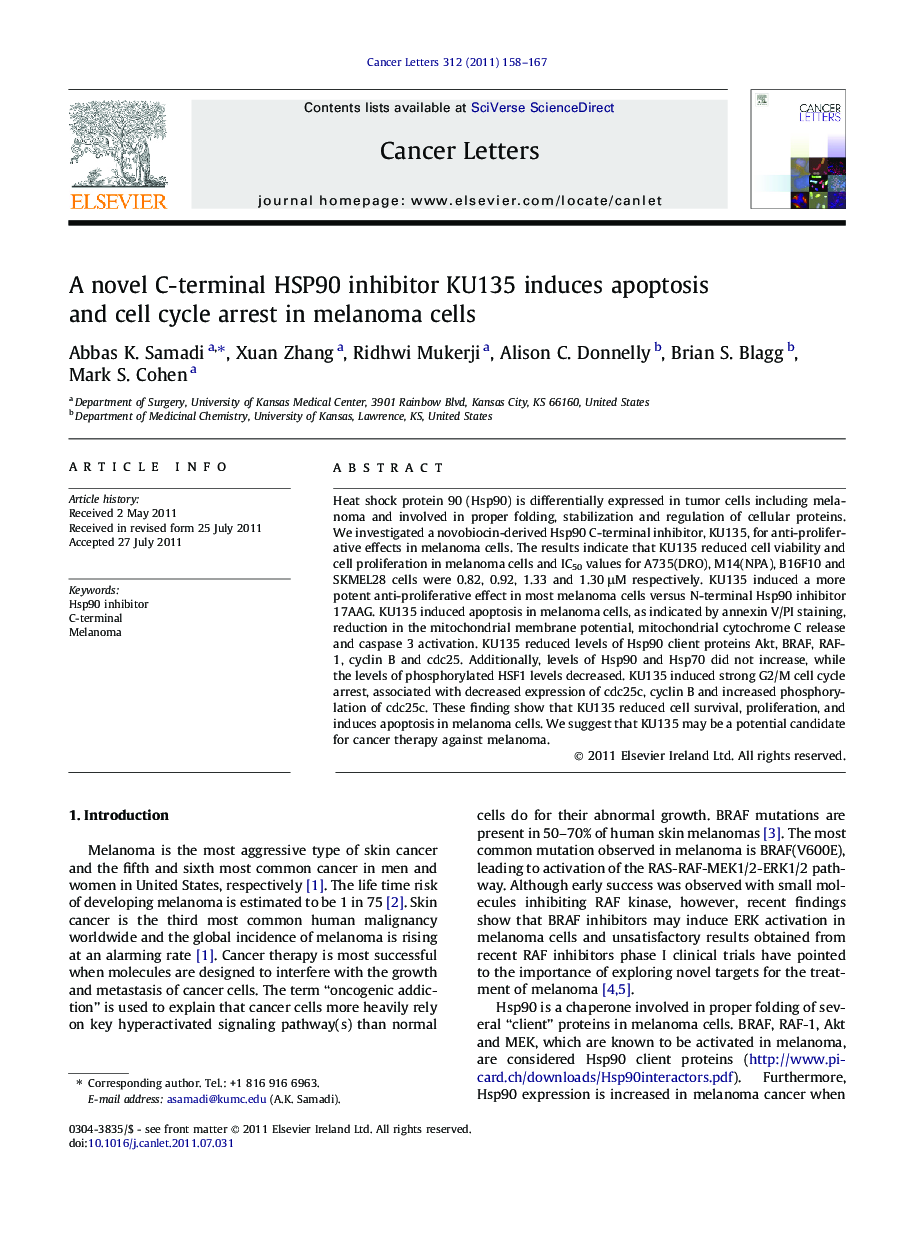| Article ID | Journal | Published Year | Pages | File Type |
|---|---|---|---|---|
| 2113547 | Cancer Letters | 2011 | 10 Pages |
Heat shock protein 90 (Hsp90) is differentially expressed in tumor cells including melanoma and involved in proper folding, stabilization and regulation of cellular proteins. We investigated a novobiocin-derived Hsp90 C-terminal inhibitor, KU135, for anti-proliferative effects in melanoma cells. The results indicate that KU135 reduced cell viability and cell proliferation in melanoma cells and IC50 values for A735(DRO), M14(NPA), B16F10 and SKMEL28 cells were 0.82, 0.92, 1.33 and 1.30 μM respectively. KU135 induced a more potent anti-proliferative effect in most melanoma cells versus N-terminal Hsp90 inhibitor 17AAG. KU135 induced apoptosis in melanoma cells, as indicated by annexin V/PI staining, reduction in the mitochondrial membrane potential, mitochondrial cytochrome C release and caspase 3 activation. KU135 reduced levels of Hsp90 client proteins Akt, BRAF, RAF-1, cyclin B and cdc25. Additionally, levels of Hsp90 and Hsp70 did not increase, while the levels of phosphorylated HSF1 levels decreased. KU135 induced strong G2/M cell cycle arrest, associated with decreased expression of cdc25c, cyclin B and increased phosphorylation of cdc25c. These finding show that KU135 reduced cell survival, proliferation, and induces apoptosis in melanoma cells. We suggest that KU135 may be a potential candidate for cancer therapy against melanoma.
► Novel c-terminal Hsp90 inhibitor, KU135 is an effective drug against melanoma. ► It inhibited proliferation and induced G2/M cell cycle arrest, and apoptosis. ► KU135 reduced Hsp90 client proteins Akt, BRAF, RAF-1, cyclin B and cdc25 proteins.
